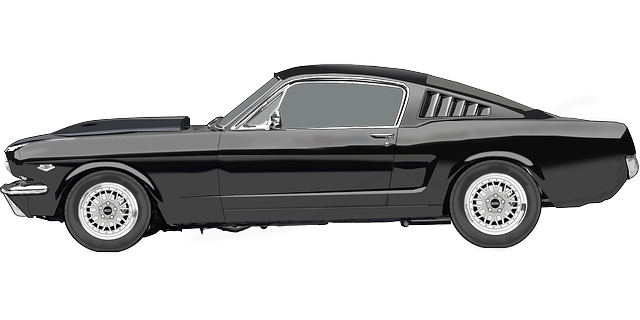Custom car insurance plans offer personalized vehicle protection, addressing unique needs often overlooked by standard policies. These tailored packages consider factors like vehicle modifications, driving history, and specific risks for enhanced coverage at competitive rates. By ensuring your car's distinct features are accounted for, custom insurance provides peace of mind and financial security for modified or specialized vehicles. Key factors influencing these plans include vehicle specifics, personal details, optional add-ons, and thorough risk assessment to offer targeted discounts and specialized coverage options. Customization ensures optimal protection while eliminating unnecessary components, resulting in significant savings. Successful implementations are seen in diverse profiles like high-performance car owners and antique car collectors, with insurers leveraging technology for data-driven policies and tailored premiums, shaping the future of car insurance towards increased personalization.
“Uncover the secrets to transforming your car insurance experience with custom plans tailored to your unique needs. In today’s diverse automotive landscape, understanding how to navigate and optimize your coverage is paramount. This comprehensive guide delves into the intricacies of custom car insurance, exploring its benefits, key components, and customization strategies. From identifying influencing factors to mastering the creation process, you’ll learn how to design a plan that mirrors your specific requirements, ensuring optimal protection and peace of mind on the road.”
Understanding Custom Car Insurance: A Comprehensive Overview

Custom car insurance plans offer a tailored approach to protecting your vehicle, catering to unique needs that standard policies might overlook. Unlike one-size-fits-all options, these plans provide flexibility and comprehensive coverage. By assessing individual factors like vehicle modifications, driving history, and specific risks, insurers can create packages that offer enhanced protection at competitive rates.
Understanding custom car insurance involves recognizing the benefits of personalized coverage. It ensures that your vehicle’s unique features are accounted for, providing peace of mind and financial security. Whether you’ve modified your car for performance, aesthetic reasons, or accessibility, a custom policy adapts to these changes, offering specialized benefits and ensuring you’re adequately protected on the road.
Benefits of Personalized Coverage for Your Vehicle

Personalized car insurance plans offer numerous benefits tailored to individual vehicle owners. Unlike one-size-fits-all policies, these customized options allow drivers to select specific coverage that aligns with their unique needs and preferences. This level of customization can result in significant savings by eliminating unnecessary add-ons while ensuring adequate protection for high-value items or specialized vehicles.
By focusing on personal circumstances, such as driving history, vehicle make and model, and intended use, insurers can offer targeted discounts and coverage options. For instance, safe drivers with no previous claims might qualify for reduced rates, while classic car owners could benefit from specialized coverage that accounts for their vehicle’s rarity and value. This personalized approach ensures peace of mind, knowing your insurance policy is as unique as your vehicle.
Key Components of a Customizable Auto Insurance Policy

When crafting a custom car insurance plan, several key components come into play. These elements ensure that the policy caters to specific needs and preferences, offering tailored coverage for unique vehicles or driving styles. Firstly, understanding the vehicle’s make, model, and year is essential. Different cars have varying safety features, engine capacities, and potential repair costs, all of which influence insurance rates. Additionally, customization allows for specifying individual coverage amounts for different aspects of the car, such as comprehensive, collision, and liability protection.
Furthermore, personal factors like driving history, age, and location play a significant role in policy formation. Insurers consider these attributes to assess risk levels, ensuring fair pricing while offering relevant incentives or discounts. Customization also extends to optional add-ons like rental car coverage during repairs, roadside assistance services, or specific coverage for classic or antique vehicles. These features provide peace of mind and ensure that the insurance plan aligns with the owner’s unique circumstances and expectations.
How to Tailor Policies to Meet Individual Needs

When it comes to car insurance, one size does not fit all. To tailor policies to meet individual needs, start by evaluating your driving habits and vehicle type. If you’re a careful driver with a fuel-efficient hybrid, you might qualify for eco-driver discounts. Conversely, if you have a young driver on your policy, consider options that offer progressive rates as they gain experience.
Next, assess the level of coverage required based on factors like assets, income, and personal circumstances. Do you own a classic car worth more than its replacement cost? You may need comprehensive and collision coverage. Are you leasing a vehicle? Your lease agreement might dictate specific insurance requirements. Carefully review policy exclusions as well, to ensure you’re not left with unexpected out-of-pocket expenses.
Factors Influencing Customization Options and Rates

When it comes to custom car insurance plans, several factors play a significant role in determining both the customization options available and the associated rates. These include the type and make of your vehicle, which can vary widely in terms of risk profile and value. For instance, classic cars or unique models may require specialized coverage due to their scarcity and potential for higher repair costs. Additionally, driving history and age are crucial; younger drivers or those with a history of accidents or tickets might face higher premiums, but they also have the opportunity to customize policies that suit their specific needs.
Location is another key consideration, as regional differences in weather patterns, road conditions, and theft rates can impact insurance costs. Customization options may expand based on local regulations, too, ensuring compliance and offering added peace of mind. Furthermore, your personal circumstances such as garaging practices, annual mileage, and security measures taken for the vehicle will influence both customization possibilities and pricing, making it essential to provide accurate information during the quoting process.
Navigating the Process: Steps to Create Your Ideal Plan

Navigating the process of creating a custom car insurance plan involves several key steps. Firstly, assess your individual needs and risk factors. Consider aspects like your driving history, vehicle type, and location to determine the level of coverage required. Compare different insurance providers and their offerings to find a policy that aligns with your budget and preferences.
Secondly, decide on the specific features you want included in your plan. This could range from comprehensive coverage for accidents and theft to personalized add-ons like rental car benefits or roadside assistance. Review policies carefully, understanding deductibles, exclusions, and what’s covered to ensure it fits your needs perfectly. By taking these steps, you can craft a tailored car insurance plan that offers the right balance of protection and value.
Common Mistakes to Avoid When Customizing Car Insurance

When customizing car insurance, several common mistakes can lead to inadequate coverage or unexpected financial burdens. One of the most frequent errors is assuming that a generic policy will suffice for a customized vehicle. Each modified aspect of your car, from performance upgrades to unique parts, may require specific consideration and additional coverage. Failing to inform your insurance provider about these changes can result in claims being denied due to non-disclosure.
Another mistake to avoid is focusing solely on the lowest premium without assessing the overall protection. Cheap car insurance might offer minimal coverage, leaving you vulnerable during accidents or theft. It’s essential to strike a balance between cost and comprehensive coverage, ensuring that your plan accounts for the unique risks associated with your customized vehicle.
Case Studies: Successful Customization Stories

In the realm of car insurance, customization has proven to be a game-changer for many drivers. Case studies across various regions highlight successful tales of tailored coverage that cater to unique automotive needs. For instance, consider a high-performance sports car owner who required specialized insurance due to the vehicle’s advanced engineering and high-risk nature during races. Through careful assessment, insurers were able to offer comprehensive protection, including specific provisions for race track accidents, ensuring peace of mind for the driver without breaking the bank.
Another compelling story involves an antique car collector with a diverse fleet spanning several decades. Custom insurance plans enabled them to safeguard their valuable collection effectively. By considering factors like rarity, historical significance, and limited-availability spare parts, insurers created policies that reflected the unique value of each vehicle. This personalized approach ensured that the collector’s financial investment was adequately protected, demonstrating how customization can address niche needs in the car insurance sector.
Future Trends in Personalized Auto Coverage

As technology advances, so does the landscape of car insurance. Future trends in personalized auto coverage are expected to incorporate more data-driven policies and innovative risk assessment methods. Insurers will leverage IoT devices, GPS tracking, and artificial intelligence to offer tailored premiums based on individual driving behavior and patterns. This means safer drivers could enjoy lower rates through real-time data analysis.
Additionally, the integration of autonomous vehicle technology will significantly impact insurance plans. As self-driving cars become more prevalent, liability and coverage models may shift towards a pay-per-mile or usage-based system. This approach aligns with the reduced risks associated with automated vehicles, potentially leading to more cost-effective and personalized car insurance options for consumers.
